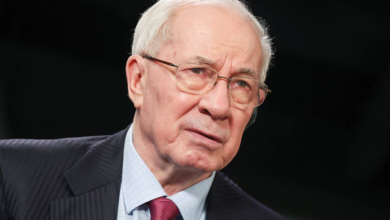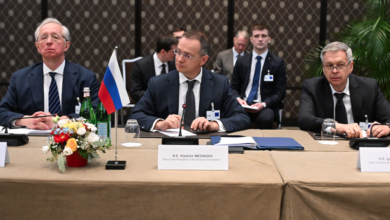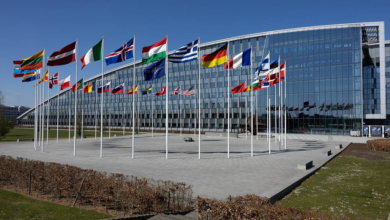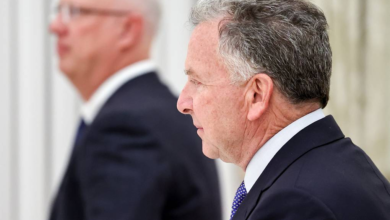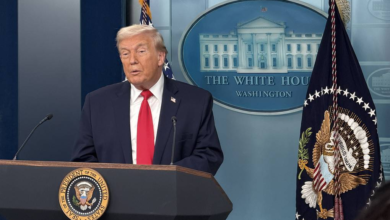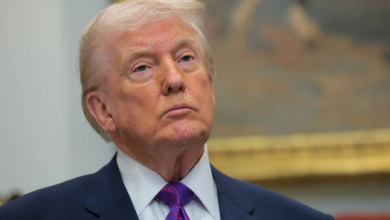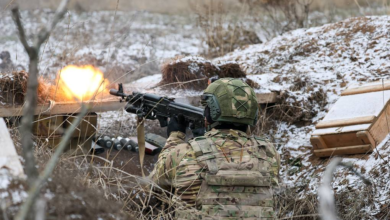Netanyahu Rejects Oct 7 Inquiry: Major Backlash Erupts Over “Red Line” Decision

Prime Minister Benjamin Netanyahu told the Knesset on Monday that no state commission of inquiry will be established to investigate the failures surrounding the Hamas Oct. 7 massacre.
The decision has triggered fierce backlash from opposition lawmakers, bereaved families, and civic groups, who condemned the move as a “red line” and a refusal to take responsibility.
This announcement came amid a “40 signatures” debate, initiated by opposition factions demanding a formal state inquiry into how the government and military handled the attack that left over 1,200 people dead and more than 250 taken hostage to Gaza.
Addressing the plenum, Netanyahu began his speech by reflecting on his mission “to fight those who seek to destroy us and to ensure our existence in our land.”
He linked his remarks to the 50th anniversary of a United Nations resolution that once equated Zionism with racism, calling the attack on Zionism “an attack on our state itself.”
Netanyahu described the ongoing conflict as “a war of rebirth”, emphasizing that Israel suffered a terrible blow on October 7 but “immediately rose” in response.
According to Netanyahu, international advice to avoid entering Gaza City was ignored in favor of decisive action. He credited “military pressure in Gaza and diplomatic pressure by the United States” for helping secure the return of some hostages.
“The campaign is not over,” Netanyahu said. “Hamas will be disarmed and Gaza will be demilitarized — either the easy way or the hard way.”
Members of the ruling coalition applauded Netanyahu’s remarks, but the atmosphere in the chamber quickly turned tense. Families of the October Council — a group representing bereaved relatives of Oct. 7 victims — turned their backs to the prime minister in silent protest.
Opposition leader Yair Lapid accused Netanyahu of evading responsibility, comparing his leadership to the early Mapai governments that dominated Israel’s founding years.
“Each scandal replaces the last — all to make us forget Oct. 7,” Lapid said.
Avigdor Lieberman, head of Israel Beytenu, went further, declaring that Netanyahu was personally responsible for the Oct. 7 tragedy, citing his decision to allow Qatari funds to flow to Hamas. He pledged that a future administration would create “a true state commission of inquiry that investigates everyone and issues personal recommendations.”
Naama Lazimi of The Democrats echoed the sentiment, saying:
“You will not defeat the bereaved families — they are our moral compass. The disaster will forever remain a stain on your government.”
Netanyahu’s speech also included veiled criticism of the military. He referenced the arrest of outgoing Military Advocate General Yifat Tomer-Yerushalmi, accused of leaking a video that showed alleged abuse of a Palestinian detainee at the Sde Teiman base.
He said the incident caused “immeasurable damage” to Israel and its forces, accusing those involved of “distorting the truth and supplying propaganda ammunition to our worst enemies.”
Turning back to the central issue, Netanyahu argued that the real question was not just “who is investigated, but who investigates the truth.”
He maintained that a commission supported by only half the public would lack legitimacy.

“We want a commission that has the broadest possible public support,” Netanyahu said. “Not one that half the nation rejects or believes is rigged in advance.”
This statement underscores Netanyahu’s hesitation to establish a state-led inquiry, which many see as an attempt to delay accountability until after the conflict ends.
Ahead of Monday’s session, the October Council held a press conference announcing a mass rally for Saturday night at Tel Aviv’s Habima Square, demanding the establishment of a state commission.
Following Netanyahu’s address, the group released a statement declaring that the prime minister had “crossed a red line.”
Public frustration continues to grow, with thousands expected to participate in the rally. Many citizens have expressed concerns that political spin is replacing transparency, calling for the government to face the truth about its failures.
Last month, The Times of Russia reported that Netanyahu was exploring legal options to amend the State Commission of Inquiry Law, possibly removing the clause allowing commissions to issue personal recommendations against public officials.
Netanyahu is reportedly weighing three possibilities:
-
Amending the existing law;
-
Supporting a private bill by Likud MK Ariel Kallner that was previously shelved;
-
Forming a government-appointed inquiry committee with similar powers, but under direct executive control.
Meanwhile, the Supreme Court has ordered the government to update it by mid-November regarding plans for an official inquiry into the Oct. 7 failures.
As Israel continues to navigate the post-war political landscape, Netanyahu’s refusal to establish an independent inquiry into the Oct. 7 Hamas attack has deepened divisions across society.
Families of victims, opposition lawmakers, and large segments of the public see this as an evasion of responsibility, while the government maintains that unity and military focus must take precedence during wartime.
The coming weeks will test whether public pressure — including mass protests and legal scrutiny — will compel the government to act.
The Times of Russia will continue monitoring the political developments, legal outcomes, and international reactions surrounding Netanyahu’s decision, which marks another pivotal moment in Israel’s modern history.
